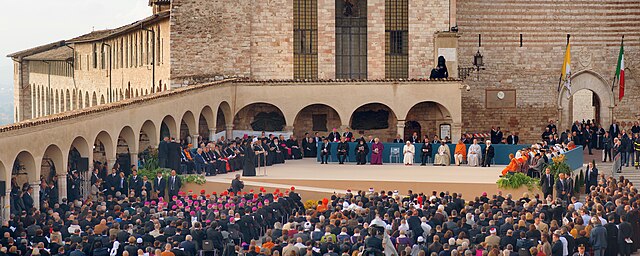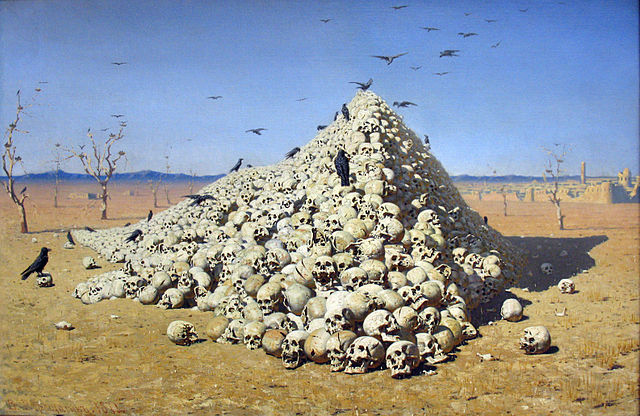Pacifism is the opposition or resistance to war, militarism or violence. The word pacifism was coined by the French peace campaigner Émile Arnaud and adopted by other peace activists at the tenth Universal Peace Congress in Glasgow in 1901. A related term is ahimsa, which is a core philosophy in Indian religions such as Hinduism, Buddhism, and Jainism. While modern connotations are recent, having been explicated since the 19th century, ancient references abound.
World Day of Prayer for Peace in Assisi, 2011
Anti-war activist arrested in San Francisco during the March 2003 protests against the war in Iraq
Vereshchagin's painting The Apotheosis of War (1871) came to be admired as one of the earliest artistic expressions of pacifism.
Penn's Treaty with the Lenape
Violence is the use of physical force to cause harm to people, non-human animals, or property, such as pain, injury, death, damage, or destruction. Some definitions are somewhat broader, such as the World Health Organization's definition of violence as "the intentional use of physical force or power, threatened or actual, against oneself, another person, or against a group or community, which either results in or has a high likelihood of resulting in injury, death, psychological harm, maldevelopment, or deprivation."
Typology of violence
Massacre of Polish civilians during Nazi Germany's occupation of Poland, December 1939
A United States M8 Greyhound armoured car in Paris during World War II
Cain killing Abel








